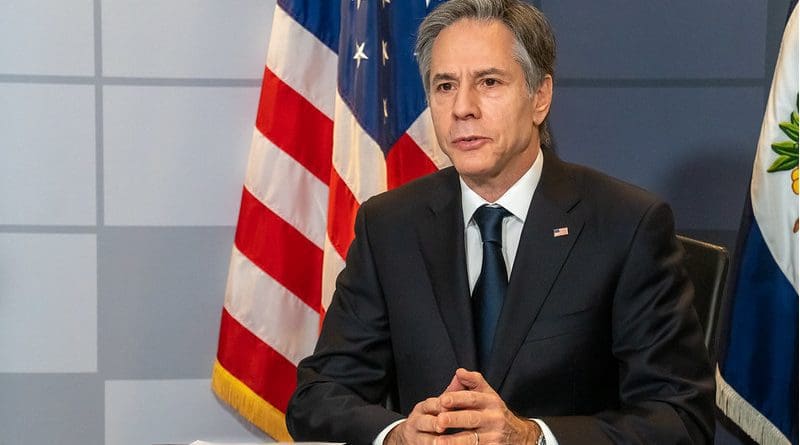Blinken Criticizes China For Slow Response On Coronavirus
By VOA
By Ken Bredemeier
The U.S. secretary of state assailed China Sunday for its early, slow response to the threat of the coronavirus more than a year ago, saying it led to “more egregious results” throughout the world than “might otherwise” have been the case.
“I think China knows that in the early stages of COVID, it didn’t do what it needed to do, which was to, in real time, give access to international experts, in real time to share information, in real time to provide real transparency,” Antony Blinken told NBC News’s “Meet the Press” show. COVID-19 is the disease caused by the coronavirus.
There was no immediate comment from China on Blinken’s remarks.
Former U.S. President Donald Trump had also been critical of China’s response, frequently using terms like the “China flu” or “Kung flu” to describe the infection.
Blinken said the worldwide death toll, which currently stands at more than 2.9 million people, “speaks to what China and other countries have to do now. As we’re dealing with COVID-19, we also have to put in place a stronger global health security system to make sure that this doesn’t happen again, or, if it does happen again, we’re able to, to mitigate it, to get ahead of it.”
He said the world must make “a real commitment to transparency, to information sharing, to access for experts. It means strengthening the World Health Organization and reforming it so it can do that. And China has to play a part in that.”
Blinken said further investigation needs to be done on the origins of the virus in Wuhan, China “so we fully understand what happened, in order to have the best shot possible preventing it from happening again. That’s why we need to get to the bottom of this.”
The WHO said in March the virus probably started in bats, and that it’s “extremely unlikely” the infection came from a laboratory leak.
The United States is now vaccinating millions of Americans against the virus every week, vastly more than in many other countries, with President Joe Biden saying that in a week all adults who want to get inoculated, regardless of their age, will be eligible to get their shot.
Blinken said the U.S. government’s first responsibility for vaccinations is in the United States.
But he said, “I think we have a significant responsibility and we’re going to be the world leader on helping to make sure that the entire world gets vaccinated.”
“And here’s why: unless and until the vast majority of people in the world are vaccinated, it’s still going to be a problem for us,” Blinken said. “Because as long as the virus is replicating somewhere, it could be mutating, and then it could be coming back to hit us.”
The top U.S. diplomat said the United States, aside from rejoining the WHO that Trump withdrew from, is intent on making vaccines “more available, especially to low- and middle-income countries. We’ve worked a very important arrangement with India, with Japan, and Australia, the so-called ‘Quad Countries,’ to increase vaccine production around the world.”
“And we’ve made some loans to our nearest neighbors, Mexico and Canada,” he said. “As we get more comfortable with where we are in vaccinating every American, we are then looking at what we can do, what more we can do around the world.”
Taiwan
Aside from the virus, Blinken said the U.S. is concerned about the “increasingly aggressive actions the government in Beijing has directed at Taiwan, raising tensions” in the Taiwan Strait between the island and mainland China.
The U.S. for years has maintained its “one China” policy, with China considering Taiwan as part of its domain. At the same time, Blinken said the U.S. has “a commitment to Taiwan…a bipartisan commitment that’s existed for many, many years, to make sure that Taiwan has the ability to defend itself, and to make sure that we’re sustaining peace and security in the western Pacific.”
“We stand behind those commitments,” the State Department chief said. “And all I can tell you is it would be a serious mistake for anyone to try to change the existing status quo by force.”
He declined to speculate on whether the U.S. would militarily defend Taiwan if China were to take control of the territory. China has expressed opposition in recent days to a series of computerized war games that Taiwan is conducting to simulate how the island might respond to a potential Chinese invasion. China said Friday that Taiwan’s military “won’t stand a chance” if Beijing chose to invade.
China has never renounced the use of force to bring the island under its control.


Mr Blinken’s comments are a surprise and one wonders what he is trying to achieve. Looked at from outside, the Chinese response was, after initial local attempts at cover up, swift and decisive – including the crucial sharing of the virus genome. China and countries like Vietnam, Taiwan or New Zealand performed far better than the US.